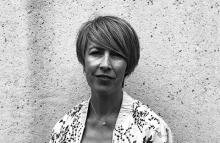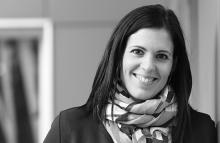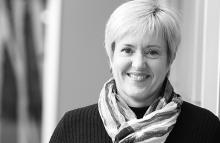ELDERBASK - Creating value for the development of an industry and services that respond to the challenge of ageing
Proyectos
The ELDERBASK project, funded by the ETORTEK Programme of the Basque Government, is posed with an integrative view of technological capabilities (IK4 and TECNALIA), and geriatric are (Matia Gerontological Institute and BIOEF), and has as its ultimate goal the development of an industry and services that respond to the challenge of ageing. The project is co-led by Tecnalia Research & Innovation, IK4 Research Alliance and Matia Gerontological Institute.
http://ec.europa.eu/research/innovation-union/index_en.cfm?section=active-healthy-ageing
Objectives
This project, led and executed by the most relevant institutions in the Basque Country, is the first official step in the transfer of value and capabilities of the existing Basque industry and the creation of new industry where necessary, in order to meet the problems generated by current demographic trends, focusing on the attention to the phenomenon of ageing and the high rate of chronic diseases at local and global levels.
The main drivers or geriatric care challenges we face are:
- The demand for resources and innovative solutions imposed chronicity and budget cuts in health systems in the current situation of global economic crisis, assuming the principles, values and objectives of the Kronikgune strategy of the Department of Health of the Basque Government.
- The objective of increasing the life of the elderly in two years and in a healthy way, one of the "Europe 2020" objectives of the European Commission through the European Innovation Partnership on Active and Healthy Ageing[1] Initiative (EIP-AHA) and accepted by our institutions through the 2015 Science, Technology and Innovation Plan[2] (PCTi 2015).
- Development and innovation in technologies for ageing as a set of disruptive technologies, in which we have collaborated with major European players.
- In facing the current and future challenges of our society, the need for sustainability of the economy, innovation, and, in particular, of the health and care sector, keeping this pillar of the Society of Wellbeing in force that is valued by all and for which we have been provided with a long tour with support, the effort and work of all members of our society.
This embodies the true social and health challenge that arises in the face of the active and healthy ageing paradigm and addressing chronicity from a sustainability perspective in the Public System, on supporting and coordinating all existing public and private actors in the sector and also adapting to the needs and the desires of our elderly.
The study of this geriatric care challenge is now a global necessity in advanced societies. The ELDERBASK project, fully aligned with these cross-border strategies, aims to find the keys and responses from applied research, technology and innovation that offer a sustainable solution, a solution that will materialise by 2020 and that places the Basque Country in the highest level of global research and innovation in the field of ageing and chronicity.
ELDERBASK approach: Basque response to the challenges
The methodology used by the ELDERBASK consortium to address these major challenges is based on the concept known as user-driven innovation, the best means to develop innovative and sustainable solutions in the sector of geriatric care, serving the needs and preferences of the stakeholders. This methodology does not focus on the technology focus, but rather on the actors and the challenges, making this a way and a mechanism, a set of references and tools that ensure satisfaction of the former (actors) and the solution of the latter (challenges) with the least possible investment in human and economic resources. It is also the right way for these innovative solutions, translated into a portfolio of new customisable and scalable services, to later serve the entirety of the population.
With this focus on the actor and the geriatric care challenges, the ELDERBASK consortium understands that in the future, new services will be precise and support solutions for the elderly will be personalised, allowing them to,
1. face their everyday lives autonomously and independently for as long as possible, continuously tending to their demands and care needs in a personalised way but also according to their tastes and preferences,
2. prevent chronic diseases from a model of personalised and adaptive care to the ageing process, but, above all, from a model of self-management of the care of their own health and their quality of life, participating and actively contributing to the coordinated action, of all agents involved in their geriatric care, for their own benefit but also in the care system itself,
3. adopt healthy styles of life in different areas of their daily life, which affect the greatest number of dimensions that characterise a process of active and healthy ageing.
With the use and involvement of current technological advances and foreseeable future developments, it is now possible to design and develop future services focused on the elderly person. However, in order to ensure the exploitation and adaptation phase particularised to each potential user, the ELDERBASK technology must also support a more continuous and better knowledge of the person to whom the geriatric care sector has to address. From a gerontological perspective (the real experts in this field and perfect connoisseurs of the multidimensionality of this problem), it is about investigating not only the “what the person does” and “how the person is” but also about deepening the “how they do it” in order to understand “how they are” and to decide “what they need” and thus to find and offer the most appropriate care services. That is, it is a comprehensive view of the actual situation of the elderly person, full of parameters and objectives and subjective variables: activities of daily life, social life, health, emotions, tastes and preferences, fears and concerns, feelings, self-perception, motivations and behaviours, etc. The set of all that information, in the hands of care and health experts who are also the people, will allow care to be offered "to fit."
It seeks, in short, that the person follows a proper lifestyle within the parameters of the active and healthy ageing model and the self-management of their own chronicity profile, preventing it as far as possible, which requires continuous and multidimensional monitoring.
Results
From the economic point of view, the project offers the Basque Country an opportunity to develop skills and scientific and technological advances in the geriatric field with crosscutting impact for the Basque economy and in accordance with the needs and opportunities identified for this sector. In the geriatric care sector, the interests of various clusters and large business groups in the Country also converge and new expectations are opened for asset generation (and therefore economic activity) in the Basque Country with enough to take them to international markets.
The specific impact on the Basque economic structure is based on the use of the intended transfer scheme and marketing of the final results. Even the internal forecasts of the consortium provide for the possible creation of new businesses in auxiliary sectors to geriatric care and with that the generation of direct employment, all of which is supported by new products with a strong component of innovation and based in technology, which not only will facilitate the process of globalisation of Basque companies, but that will transform the investment of knowledge in GDP.
Consortium
The project consortium consists of leading research institutions in the areas of scientific-technological and geriatric care in the Basque Country:
.jpg)



